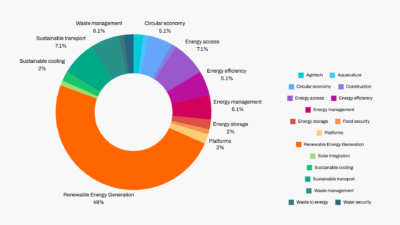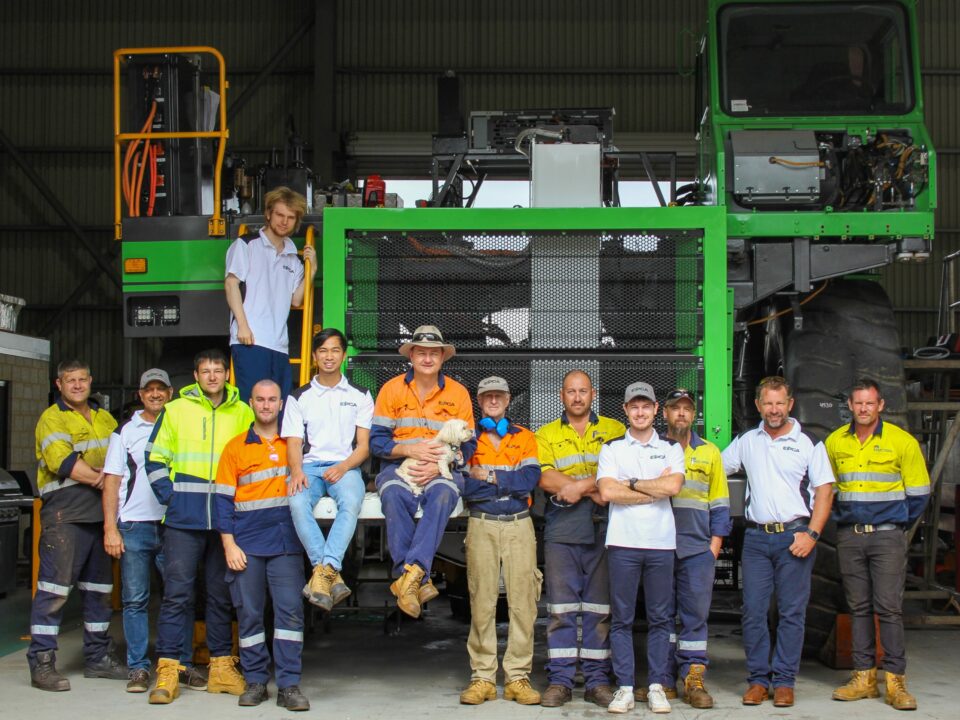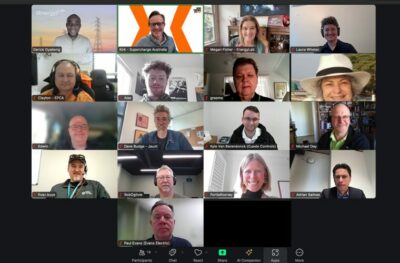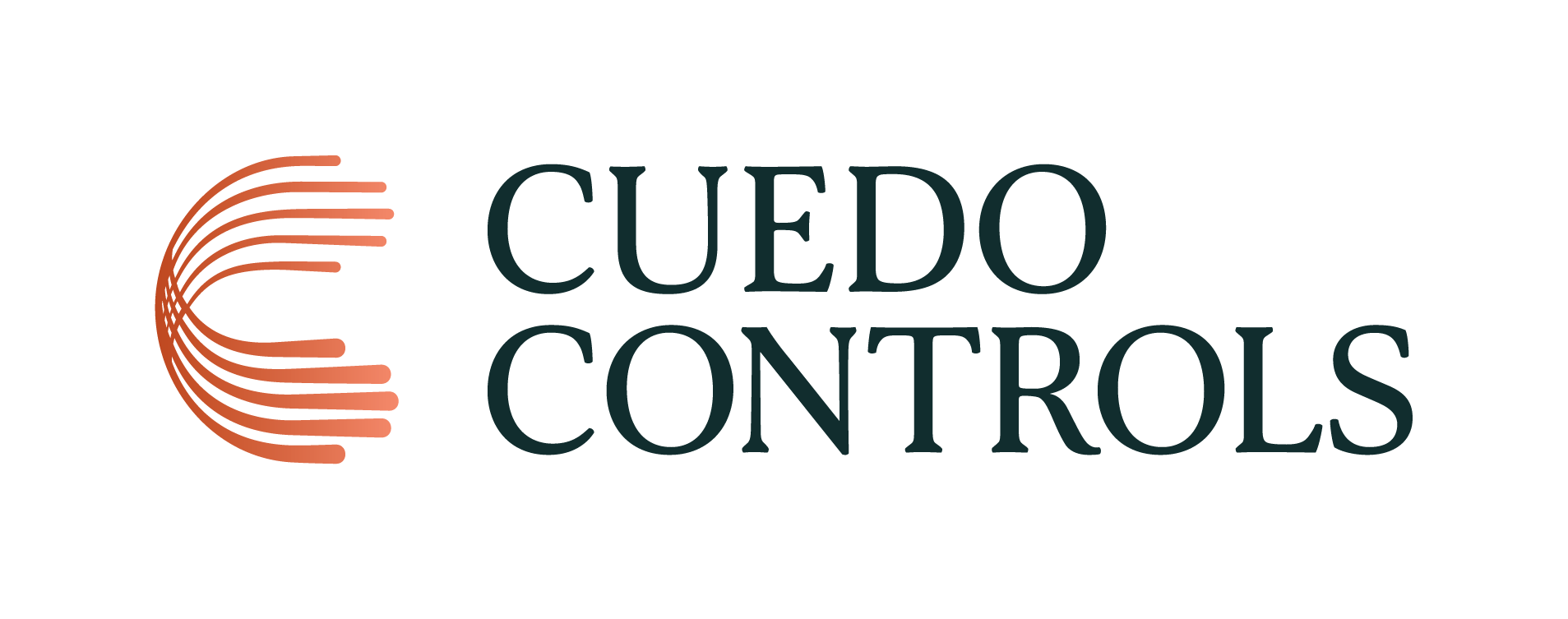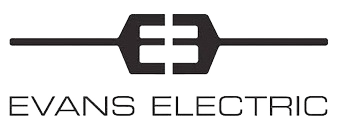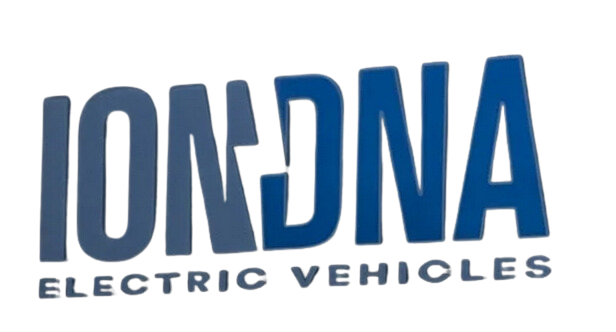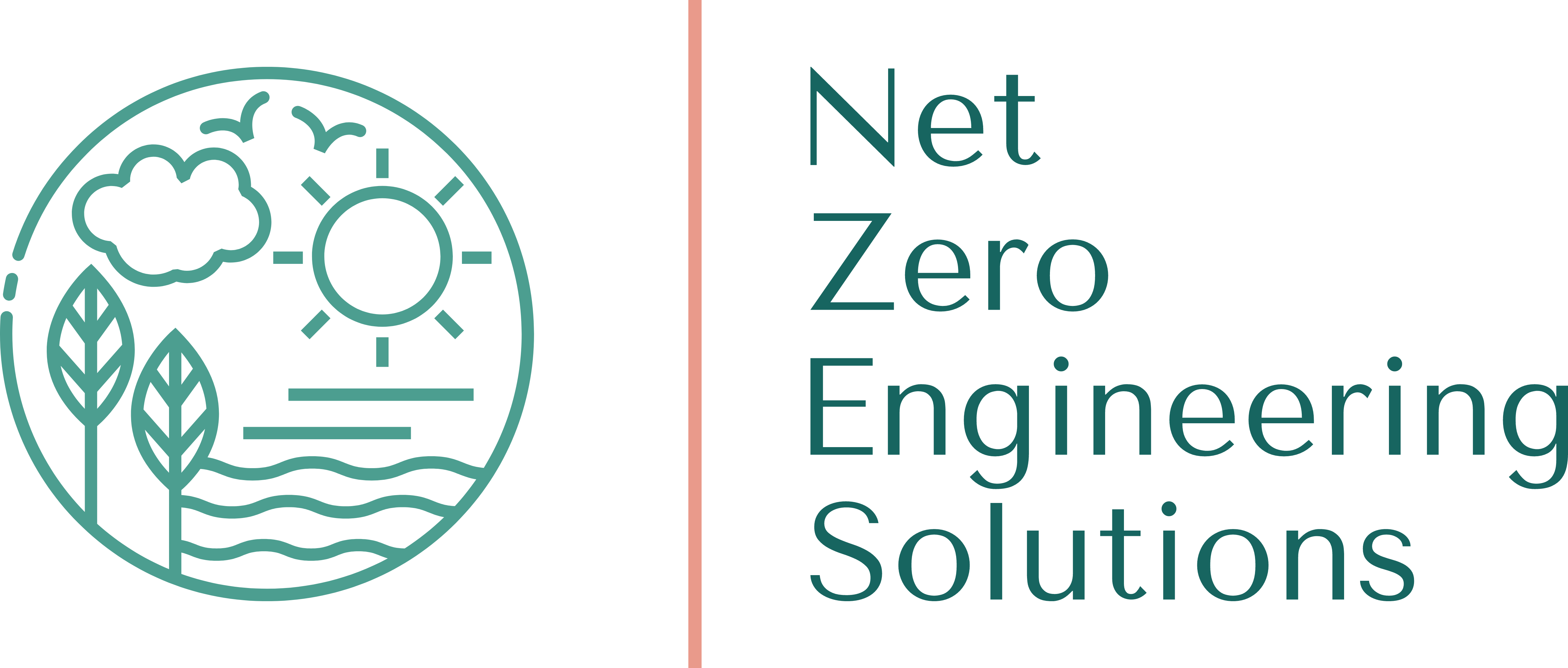Indonesia, the eighth-largest carbon emitter globally, faces significant climate risks. Despite these challenges, its abundant resources position Indonesia as a pivotal player in transitioning towards sustainable and decarbonized solutions. New Energy Nexus Indonesia is leading this change by supporting clean energy entrepreneurs in the climate solution sector. One of its programs, the Dilau Initiative, aims to decarbonize Indonesia’s marine and fishery sectors with a particular focus on coastal communities. The initiative includes conducting community outreach, building capacity, introducing scalable innovations, and preserving the marine ecosystem.
Bungin Village, located in the Alas District of the Sumbawa Regency, was originally settled by members of the Bajo Tribe, renowned for their free diving and fishing skills and recognized as the world’s largest remaining group of sea nomads. The Bajo community has maintained its distinct way of life by building its own islet out of coral, allowing their culture to develop separately from the mainland. The village is densely populated by 2,338 people per square kilometer, with most residents being fisherfolk. This includes 1,020 to 1,113 active fishers, 9 active fish collectors, and 12 fish farming groups known as KJA (Kelompok Jaringan Apung); though only 4 of these groups remain active.

Aerial view of Bungin Village. Photo by Yudha Baskoro

A fisherman passes his catch to his wife to sell at the market. Photo by Yudha Baskoro
The problem
Transitioning towards sustainable practices in Indonesia is a complex issue. For many Indonesians, the priority is simply putting food on the table, making it tough to prioritize sustainable practices.
In Bungin Village, the fishing sector faces several challenges, including issues with storage, high electricity, and fuel costs, as well as its dependence on conventional fuel for boats—which is both expensive and harmful to the environment.
Waste is also a significant issue on Bungin Island. The use of styrofoam for storage and plastic for fish captures and ice blocks have resulted in considerable trash ending up in the ocean. Moreover, fisherfolk often catch more fish than they can sell, resulting in waste and financial stress due to limited storage options and the high cost of ice and electricity.
The fishing sector holds a real chance for positive change, especially as more people are looking for ways to cut costs. With plenty of sunlight in the area, there’s a great opportunity to bring in sustainable solutions—one such idea is solar-powered cold storage for fish catch and electric outboard motors for boats. But the shift isn’t easy; there’s a knowledge gap, and some folks are hesitant, which is understandable given the lack of awareness, the high upfront costs, and concerns about whether new technologies will work. Making this transition will need careful planning and strong support to overcome these hurdles. With the end goal of adopting sustainable technologies, we can help lower costs and make sure there’s enough food for everyone.
“The potential for solar power in Sumbawa is excellent, so it would be a shame not to utilize it. We want to introduce green practices to the fishermen in Bungin Island, providing a solution to their problems” — Ahmad Jaya (Chief of Technology of Olat Maras Power)
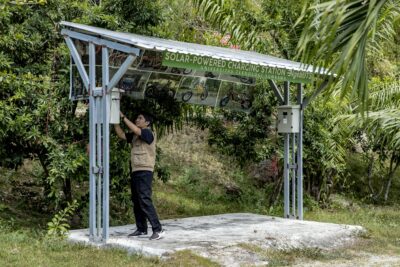
Nova, CEO of Olat Maras, inspects a solar-powered charging station. Photo by Yudha Baskoro
The solution
Our feasibility study
To get this initiative off the ground, we first needed to understand the current situation and the people who live there.
The feasibility study conducted by New Energy Nexus Indonesia and Manussa Consulting focuses on how we can bring solar-powered cold storage and electric outboard motors to Bungin Village’s fishing industry. The goal is to cut carbon emissions and boost economic efficiency by embracing sustainable technology. We surveyed 54 people, including 45 fishers and 9 village fish collectors (Pengepul Ikan), and conducted interviews with 22 representatives from startups, fish collectors, mariculture farmers, fishers, restaurant owners, local government, village enterprises, and banking institutions. The study suggests that providing workshops and financial incentives will be crucial to getting people on board with these new technologies. The financial analysis confirms that the project is feasible, but it will require careful financial planning and backup plans to ensure success.
The study brings to light some major challenges, including the high costs and the fact that many people are unfamiliar with the new technology. We asked locals about their knowledge and understanding of these technologies, their benefits, and climate change in general, and we found that there is a noticeable lack of familiarity, as shown in the chart below.

Noticing this trend, we wanted to gauge how interested people are in adopting and buying the technology. The results reveal that their interest is considered a balance between those who are keen, those who aren’t, and those who are neutral. But when it comes to making a purchase, it turns out that more people seem to shy away, which makes sense given the still low awareness of electric outboard motors.


In contrast to responses about solar-powered cold storage, where people seem to have a better understanding due to existing units available in the village, therefore show more interest in adoption and purchase, although there’s still a high level of disinterest. This highlights how crucial initial awareness and knowledge are.


When we asked why folks were disinterested, most said it was because the unit wasn’t a priority for them and they were worried about the high initial cost. Others were concerned about its capacity and durability.
Offering solutions such as financial support and awareness-raising programs may help bridge these gaps. By involving various stakeholders and pushing for sustainability, the project hopes to set an example for positive change in other coastal communities.
Solar Powered Cold Storage by Olat Maras
Our study reveals that many village fish collectors in larger capacity categories depend on multiple cooling units powered by PLN electricity, leading to significant monthly electricity costs. While fish collectors can store their catch for 2 to 4 days, they often prefer to sell it immediately. Some fishers also use cold storage when they return late from fishing, relying on arrangements with village collectors. To maintain the cold chain, fish collectors use styrofoam boxes and ice blocks, incurring substantial daily expenses.
Recognizing the Island’s abundant solar energy, Olat Maras Power offers sun-powered cold storage to help cut down electricity costs. This new solution addresses the significant economic loss caused by fish spoilage. Previously, fish quality would degrade by an average of 220 kg per month, reaching up to 1.2 tons during peak fishing seasons. With cold storage, fishers can now store their catch longer, reducing waste and increasing the market value of their products. By preventing spoilage—assuming a 25% rate—each fish collector can avoid economic losses of approximately IDR 2,388,750 (~US$147) per month.
“Before we had the cold storage, I always looked for ice blocks. If I couldn’t find it, I had to let the fish rot” — Mrs. Jusmia (a local fishmonger from Bungin Island, user, and beneficiary of the technology)
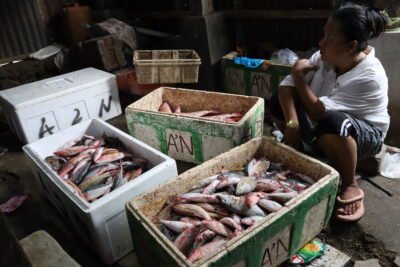
Fish catch stored in styrofoam boxes, ready to be sold at the market. Photo by Manussa Consulting

A conversation with local fisherfolk for the feasibility study.
Electric Outboard Motors by Maritek
Despite the environmental impact and high costs associated with conventional fuels, many fishers are still unaware of alternatives like electric outboard motors. Our research shows that most fishers don’t know about the environmental damage caused by fossil fuels. In fact, 51% aren’t aware that fossil fuels are a finite resource, and 69% don’t understand the connection between fossil fuels, carbon emissions, and pollution, which contribute to climate change. Additionally, about 90% of fishers are unaware of alternatives such as electric outboard motors.
Switching to electric outboard motors can lead to significant cost savings for fishers, with each person saving around IDR 2,012,500 (~USD 124) per month on conventional fuel. Using solar-powered cold storage can further reduce costs, saving IDR 2,265,000 (~USD 140) on ice blocks and IDR 83,326 (~USD 5) on electricity per 300L storage unit. These savings can greatly boost their profits per delivery cycle, potentially doubling their earnings.
Our approach
While there’s promising interest in solar-powered cold storage and electric outboard motors from fish collectors, mariculture farmers, and restaurant owners, we face challenges like high initial costs and concerns about durability.
To address these issues, we will organize workshops to educate small and medium-scale fish collectors, mariculture farmers, restaurant owners, and other relevant stakeholders. These workshops will focus on the potential cost savings and environmental benefits of these technologies. We will also share case studies, testimonials, and success stories from current users within the community to encourage wider acceptance and adoption.
Our study identifies Pokdakan groups (Kelompok Budidaya Ikan), especially Lelepa boat fishers, as key candidates for this project. They are well-suited for solar-powered cold storage and electric outboard motors and will serve as an ideal starting point for introducing and adopting these technologies. We will run pilot projects with them to give participants firsthand experience with the technology. By collecting and analyzing their feedback, we can refine the technology and address any operational issues, ensuring it meets local needs and builds trust among potential users.
What success looks to us
For these technologies to truly be implemented in the village, we will need to connect with all the key people involved—fish collectors, mariculture farmers, and village officials—who will help build support within the community.
Our approach includes educational workshops, pilot demonstrations, and ongoing feedback mechanisms, with plans to scale up pilot trials to involve more fisherfolks.
We are hoping that the Indonesian government will support sustainability and growth following our pilot trials. Our goal is to develop a comprehensive knowledge base on coastal decarbonization, securing enthusiastic community support and fostering a sense of ownership in the initiative. We are also dedicated to involving youth from the Greater Sumbawa area in innovative projects, inspiring them to address local challenges and actively contribute to the initiative’s success.
In the future, we aim to establish a flexible business model for these technology adoption managed by community-owned enterprises, with a strong emphasis on transparency to navigate social and political challenges effectively.
The Dilau Initiative is supported by the Milkywire Foundation and implemented with help from our partners at Manussa Consulting.
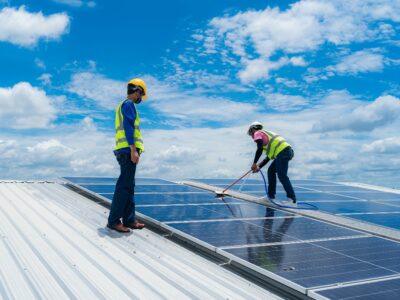
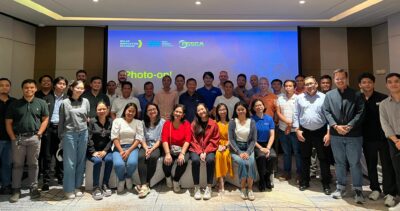
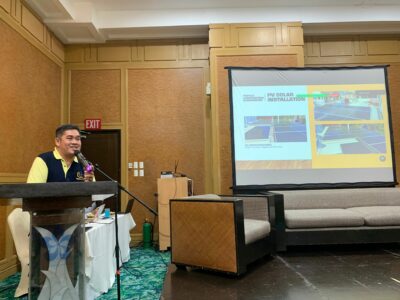
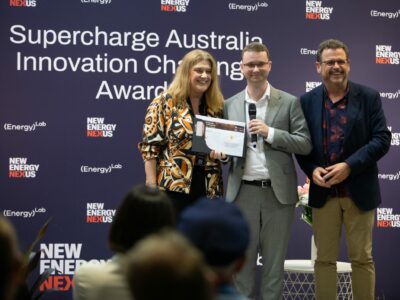
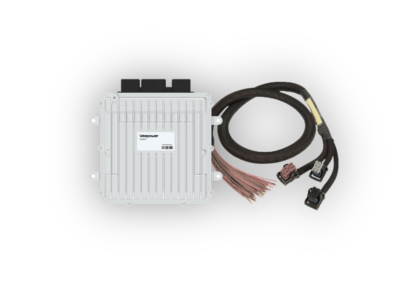
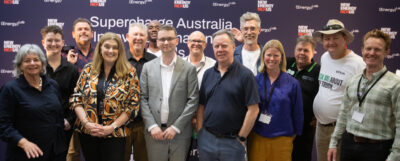

![3ge first winner of nex's indonesia [re]power energy policy hackathon 00](https://www.newenergynexus.com/wp-content/uploads/2024/09/3GE-first-winner-of-NEXs-Indonesia-REPower-Energy-Policy-Hackathon-00-400x267.jpg)





